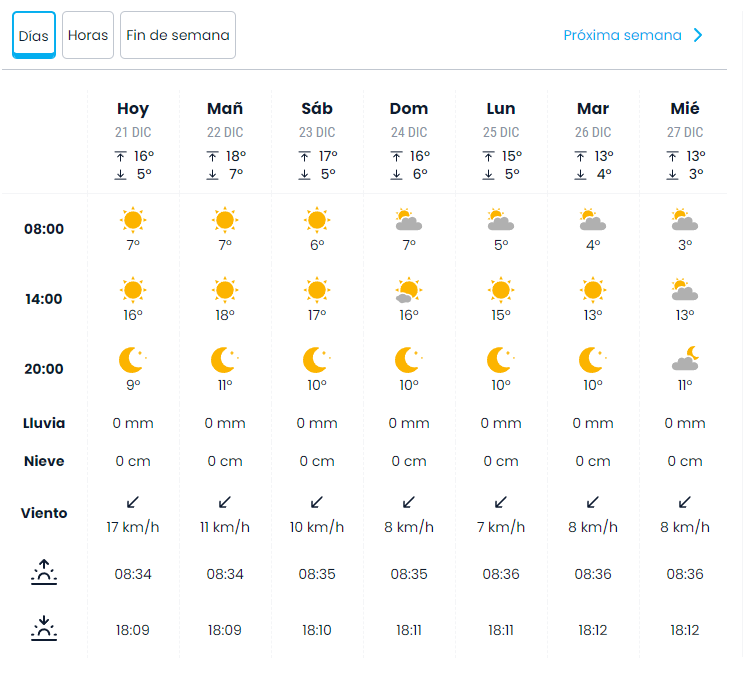MongoClima
This work focuses on developing a MongoDB database for the management and analysis of weather station data in Spain. The significance of this database lies in its ability to store and process large volumes of climatic information, crucial for environmental, agricultural, and climate change studies. We examine the structure and features of MongoDB, a NoSQL database, to assess its suitability for handling dynamic and heterogeneous data. This project aims to provide an efficient and scalable tool that facilitates access to and analysis of climatic data, thereby offering a solid foundation for decision-making and research in various fields.

Problem
Existing applications and systems offer basic data such as current temperature and precipitation probability, but lack a broader and more detailed vision. It is difficult to find a unified source that provides historical temperature records, especially from stations close to a specific location. This limitation hindered an in-depth analysis of the climate and its long-term patterns, crucial for studying various sectors. The lack of access to detailed historical data and the inability to easily compare information from different nearby stations represented a major obstacle for effective climate analysis and informed decision-making.

Proposed solution
The proposed solution is the development of a MongoDB database, utilizing its capabilities to handle large data volumes and its flexibility for non-uniform data structures. This database will store climatic data from multiple stations across Spain, providing a structure that facilitates quick and efficient queries. A data model will be implemented to accommodate both historical and real-time data, allowing for detailed climate analysis. Additionally, aggregation functions and statistical analysis tools will be integrated to aid data interpretation. The user interface will be intuitive, enabling non-technical users to easily access and understand the information. Visualization tools will also be incorporated to represent climate trends and patterns. This solution will not only provide an effective means for storing and analyzing climatic data but will also serve as a valuable tool for researchers, meteorologists, and decision-makers in the environmental and agricultural sectors.

Main features
- All the weather stations in Spain with data from 1920 to 2018.
- Classification by province and search tool.
- Climograph with average, maximum, and minimum temperatures and precipitation by month.
- Climatic parameters with data table.
- Historical record of temperatures and anomalies.
- Location of the station with interactive map and the five nearest stations.